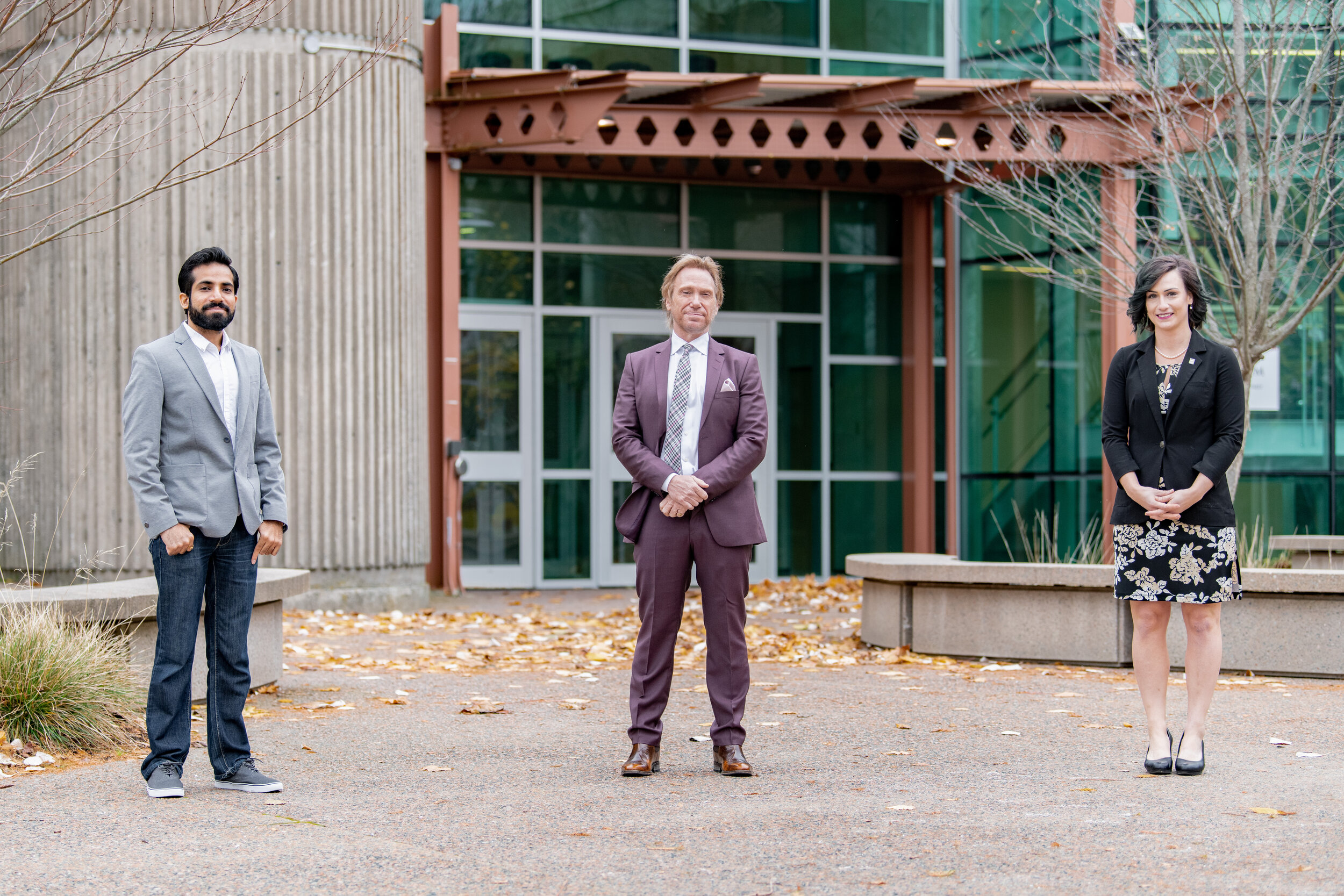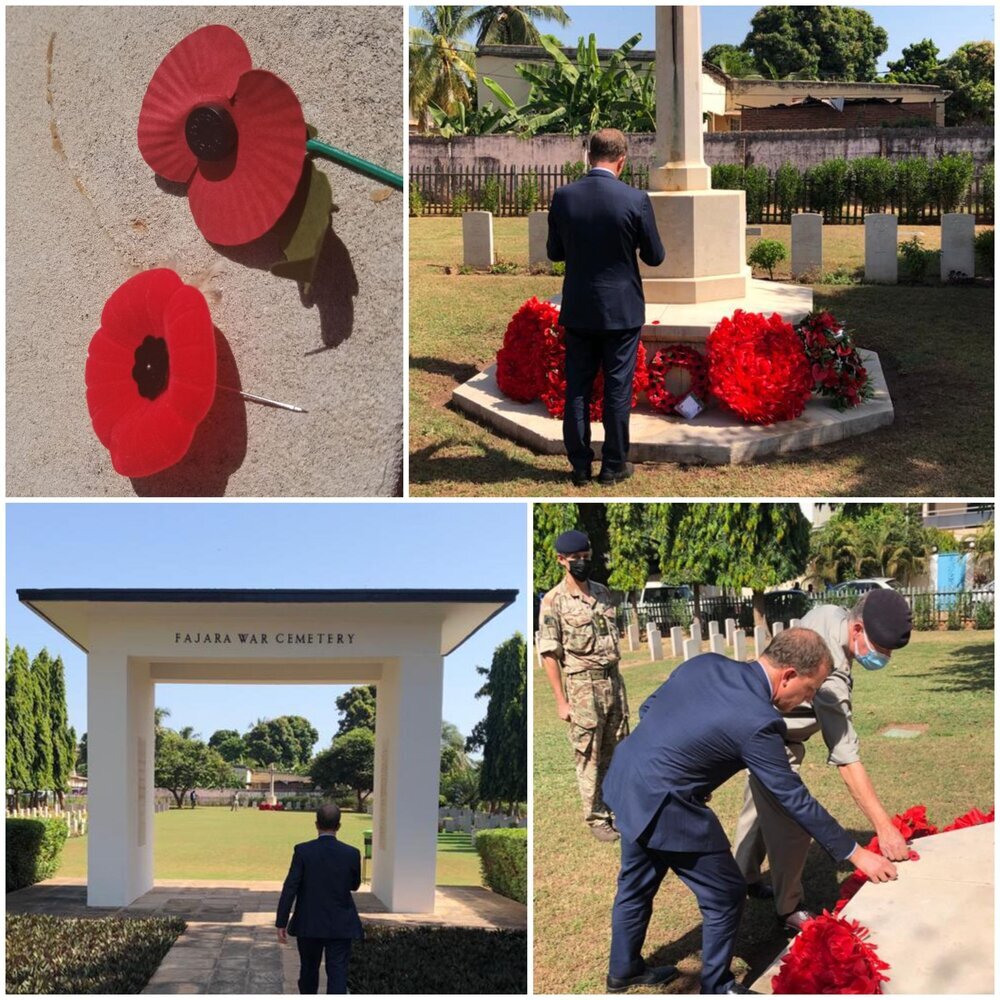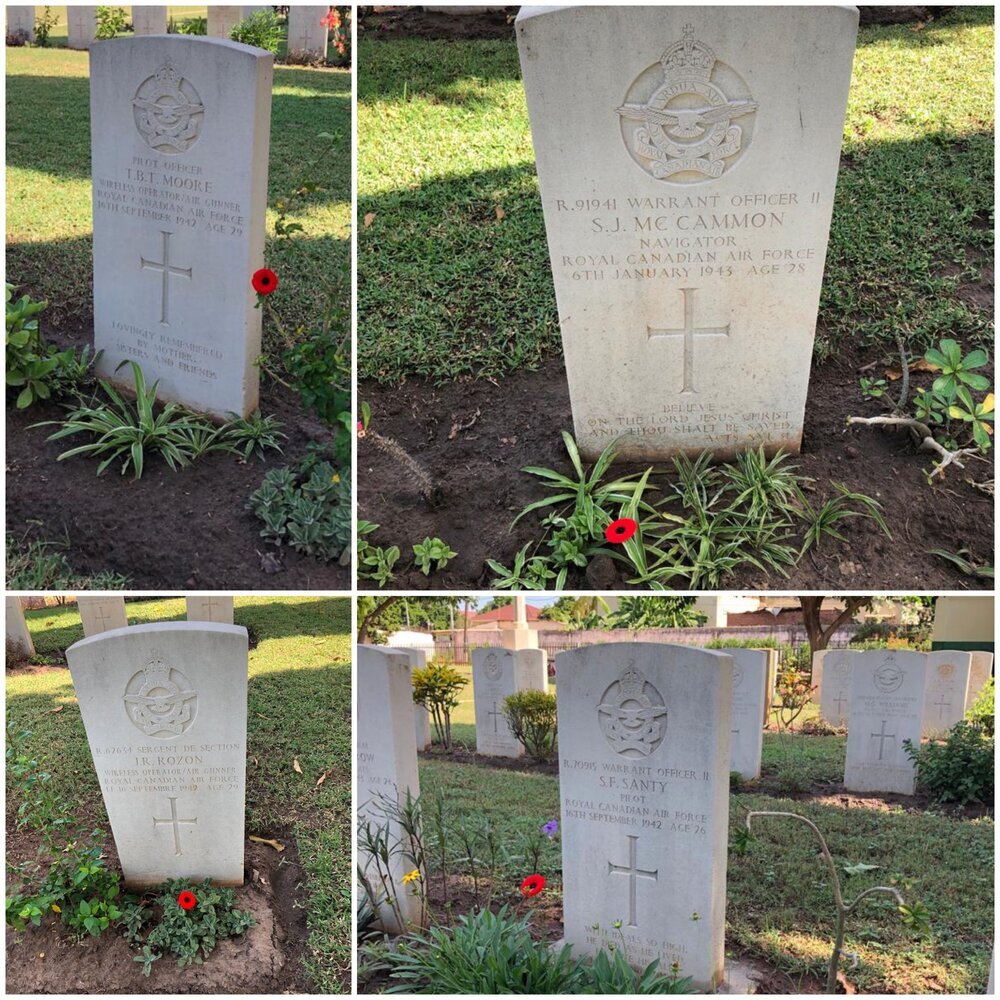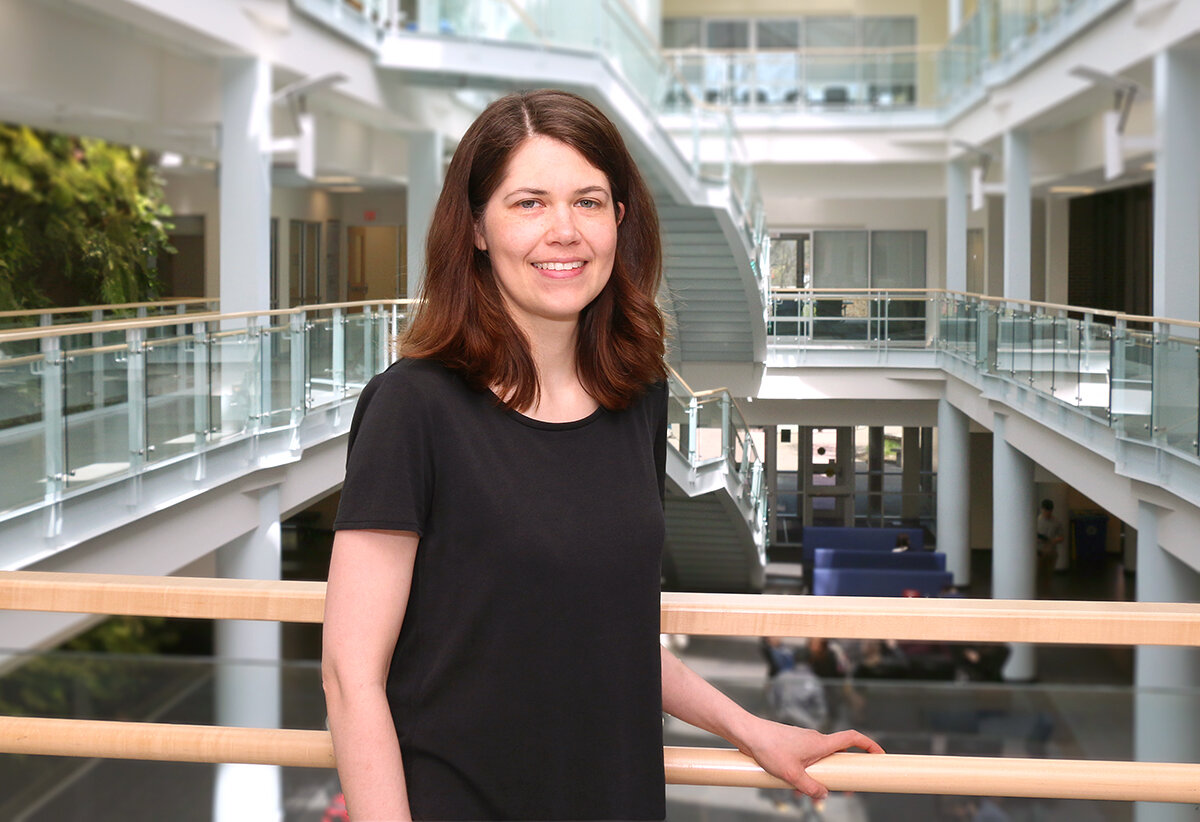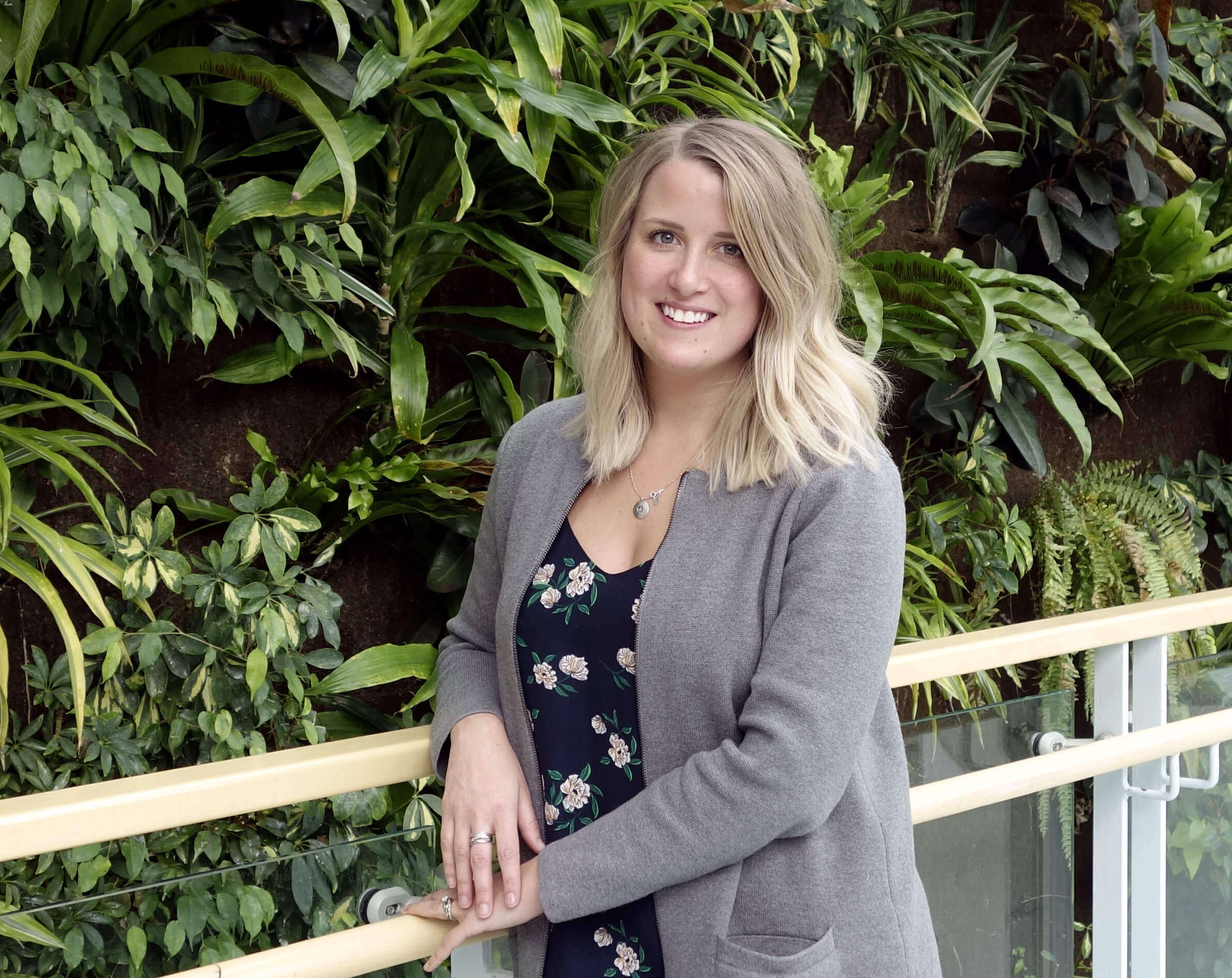The excellence of Saint Mary's University's Master of Technology Entrepreneurship and Innovation (MTEI) program is being recognized by a major gift from a leading figure in Canada's business and entrepreneurship community.
Rishbah Arora, MTEI student; Dr. Robert Steele, DComm’18; and Laura Russell, MTEI student.
"I have always been impressed by Saint Mary's University and the Sobey School of Business. From my time as a student and in every interaction I have with a Saint Mary's student going back decades," says Dr. Robert Steele DComm'18. "I have seen the impact that a strong business foundation from Saint Mary's provides students. I know that through this gift, Saint Mary's will be able to continue to attract amazing students from Atlantic Canada, Canada and around the world to the MTEI program and the Sobey School. Students will learn from great professors and receive the support they need to successfully develop their business ideas and start-ups into thriving businesses that will give back to the economic vitality of our region."
Dr. Steele is investing a $2 million philanthropic gift in the Sobey School of Business' Master of Technology Entrepreneurship and Innovation program which will enable it to double the size of the program, create new resources for research in the area of entrepreneurship, and support students by providing scholarships and awards to student entrepreneurs.
Over ten years, three major initiatives will be supported by this gift. They are:
The Steele MTEI Scholarships: These scholarships will support bright, creative and motivated students who have chosen the MTEI program to help them achieve their dreams of being an entrepreneur.
The Steele Entrepreneurship Awards: These entrepreneurship awards will be awarded to MTEI student entrepreneurs who are in the earliest stages of starting new businesses.
The Steele Professorship in Entrepreneurship in the Sobey School of Business: This new professorship will provide additional capacity and support to expand and broaden entrepreneurship research intensity at the Sobey School.
“This gift reflects the outstanding success of our MTEI program over the past six years and recognizes the tremendous impact of the program on entrepreneurship and innovation in Atlantic Canada,” says Saint Mary’s University President Dr. Robert Summerby-Murray. “Saint Mary’s and the Sobey School of Business are the entrepreneurship leaders in our region, and programs like MTEI show why we are part of a rising entrepreneurship tide both nationally and internationally.”
“On behalf of Saint Mary’s University, the Sobey School of Business, and the MTEI program, I want to thank Dr. Steele for his commitment to the continued success of our institution and entrepreneurship in Atlantic Canada and beyond,” says President Summerby-Murray.
The Master of Technology Entrepreneurship and Innovation at Saint Mary’s University is a comprehensive, cross-sector program that combines the knowledge and skills of a management program with marketing, leadership, finance, accounting, communications, economics and information technology. Alumni from the program have started their own companies ranging from rope-less lobster traps to companies specializing in customized lighting, water quality measurement, and training for recreation gaming to e-sports. Alumni have also added value to companies by bringing their MTEI expertise to management at different businesses. Those business areas include companies that deal with cybersecurity, virtual conferencing solutions, and transitioning traditionally retail-based services to at-home delivery.
“The Sobey School of Business is preparing the next generation of Canadian entrepreneurs and researchers in business and entrepreneurship,” says Dr. Harjeet Bhabra, Dean of the Sobey School of Business. “With the rapid change this year in how businesses operate, programs focused on the integration of technology and innovation like MTEI are more important now than ever before. With this gift, we can continue to expand the scope of the program, engage more entrepreneurs and researchers in growing knowledge creation and expanding the entrepreneurship and start-up sector.”

